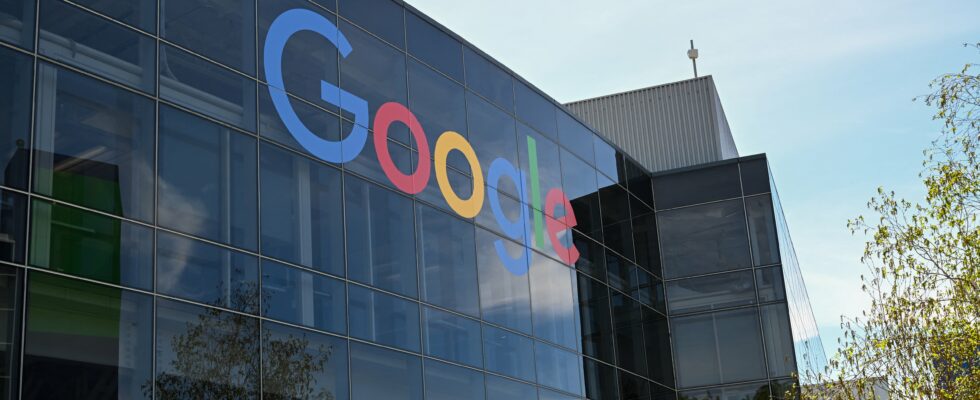Google is in turn put together. “Google kills its diversity programs”, title The Wall Street Journal. After Disney, McDonald’s, Ford or Meta, Alphabet, Google’s parent company, said “abandoning some of its diversity recruitment objectives, joining a long list of American companies that have abandoned or reduced their programs to diversity, equity and inclusion, “said the magazine The Time.
In its annual report for investors published Wednesday, February 5, the technology giant has indeed changed tone, deleting any reference to its diversity policy carried out so far. Thus, this sentence, however present since 2021, has disappeared: “At Alphabet, we are committed to taking into account diversity, equity and inclusion in everything we do and to develop a representative workforce Users we serve. ” Google has confirmed to AFP no longer having hiring objectives linked to the representation of different groups of people.
A backhand while shortly after the death of George Floyd, Sundar Pichai, the CEO of Google, had set itself the objective of increasing by 2025 the representation of the groups underrepresented in the ranks of the Directorate of the company, recalls the Associated Press agency.
Trump’s anti-dei pressures
This decision, also explained in an email sent to Google employees on Wednesday, actually made following an executive decree signed by President Donald Trump, from his first day in the White House, which aims to put pressure on large companies, Working in particular with the American government, so that they abandon their Dei initiatives. The text simply declares “illegal” the programs and policies of “Dei” (diversity, equity, inclusion) within the federal state. In other words, in all national administrations. In the medium term, Donald Trump’s objective is to put an end to these policies within companies working with the federal state. This is the case of Google, which sells a large part of its technology and its services to the federal government. “We have updated our 10-K form to reflect this, and as a federal subcontractor, our teams also assess the necessary changes following recent judicial decisions and executive decrees on this subject,” said Google in a press release transmitted to AP.
https://www.youtube.com/watch?v=dtkmzqc0kse
In the same way as the term “woke”, the very acronym of “dei” has become in recent years one of the leitmotifs of the American hard right, which considers that these policies actually promote discrimination through the establishment of quotas , to the detriment of merit. In the United States, “Dei” programs are however a legacy of the 1960s civil rights movement. They aim to promote equal opportunities taking into account, especially in the recruitment process, criteria such as Ethnicity, gender, disability, sexual orientation or even a past military commitment.
Alignment of Silicon Valley
The recent decree signed by Donald Trump threatens to impose financial sanctions on federal entrepreneurs considered to have “illegal” programs. Like many other leading leaders in the technology sector, Sundar Pichai, the CEO of Google was present alongside Donald Trump during his inauguration. Meta abandoned her Dei program last month, shortly before the Republican inauguration, while Amazon suspended some of her Dei programs in December after the election of Trump. “The legal and political landscape around the efforts of diversity, equity and inclusion in the United States is changing,” said Meta in early January in an internal note announcing this change. Facebook’s mother -in -law, WhatsApp and Instagram thus confirmed the turn taken by its founder, Mark Zuckerberg, seen a few days later at the forefront of Donald Trump’s inauguration ceremony.
Beyond the middle the administration and tech, the anti-“dei” offensive has extended to other large companies. Target and Walmart in the distribution, McDonald’s in catering, or Ford and Harley-Davidson, in the industry: all have recently announced to end their “dei” programs, in part or in whole. But all the giants in the sector do not take this direction. In early January, Apple’s board of directors spoke out against a shareholder proposal aimed at ending the Dei programs.
